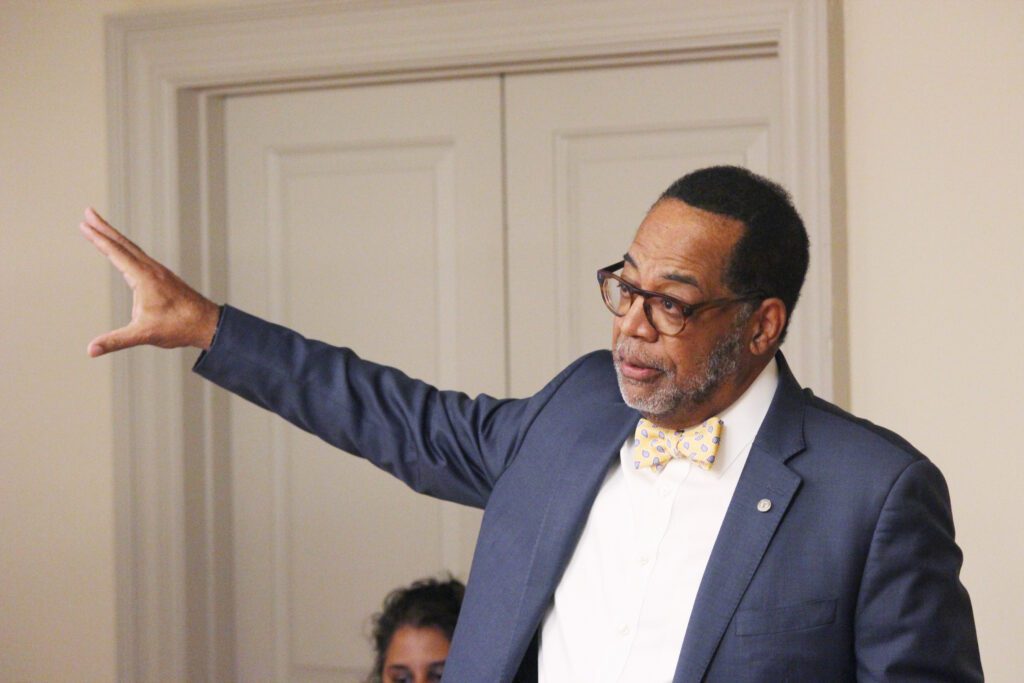How does an urban medical center serving a tri-state area go from being a place of last resort for healthcare to becoming the first place you want to go to for treatment?
It’s a question that Dr. Reginald Coopwood feels has only been partially answered in his 14 years as CEO of Regional One Health – especially given his grand vision: Not only constructing a brand new projected $1 billion hospital facility but also hosting an academic medical center inside it.
“In 2010, we were a true safety net hospital,” Coopwood said at a recent Kiwanis Club luncheon. “This community saw the Med as a hospital for the poor, a hospital for trauma, for high-risk moms, for the uninsured. (But) when you needed to have your gallbladder out and you had insurance, you would go to Methodist, Baptist, or St. Francis. You wouldn’t consider going to the Med because that was what this community understood it to be.”
Changing that perception started with a name change and a brand makeover, from The Med to Regional One. Gradually, Coopwood said, Regional One has attracted top-level medical talent, invested in technology, and rebuilt its image as a leader in healthcare for the Mid-South.
But those are only stepping stones toward transforming Regional One into a robust academic medical center, on par with nationally known medical centers like those at Johns Hopkins University or Harvard University.
Building on a longstanding relationship with the University of Tennessee Health Sciences Center, Coopwood sees impacts that ripple beyond medicine. He referenced a Chamber of Commerce projection of 7,300 new jobs and a 10-year total economic impact of about $4 billion.

“Institutions attract talent,” he said. “You’re able to attract researchers, physicians, clinicians, and scientists who want to be a part of the next phase in healthcare. When you create that environment, it’s where people want to come and be. They move into our community, buy homes, and contribute to the local economy.”
Specific advancements at Regional One include a robust academic oncology program and the introduction of robotic surgery, attracting patients from outside Memphis seeking cutting-edge cancer treatments.
Coopwood emphasized that the transformation will benefit all sectors of the community, ensuring high-quality care for everyone, regardless of economic status. Programs like One Health, which focus on preventive care and addressing social determinants of health, play a crucial role in this vision.
But first, it will have to be funded and built. Coopwood mentioned ongoing discussions with Shelby County government and the State of Tennessee regarding ownership and governance of the new academic medical center.
He also highlighted the increased financial commitment from the county. Shelby County Mayor Lee Harris successfully got a wheel tax passed with the intent of increasing funding for Regional One. And he hasn’t stopped there.
“In his current budget, Mayor Harris has increased the commitment from the county from $350 million to a little over $500 million,” Coopwood said. “As we go through this budget season, we will know more by the end of June or July.”
With these efforts, Coopwood envisions a transformative future for Regional One Health, making it not only a hospital of choice but a beacon of advanced medical care and innovation for the entire region.


